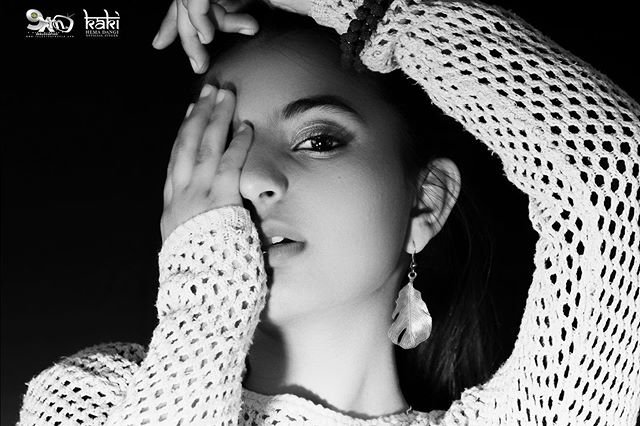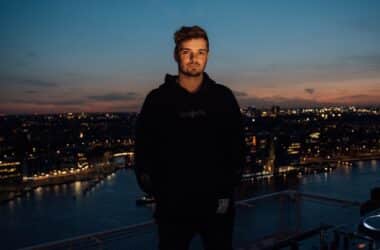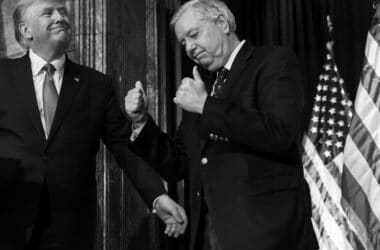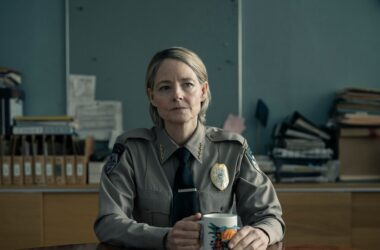What was the brief given to you by director
He told me that he was making a story based on the hijack of Kandahar, and he told me how Trishant Srivastava and he, along with Adrian Levy, were rewriting a lot of it, how the initial drafts were based on Flight Into Fear: The Captain’s Story.And now it was evolving into a story that went beyond what happened in the aircraft, they were exploring what happened down, and one of the aspects that they were exploring was the press, and how they reacted to this incident, and he said, “Mujhe lagta hai tereko maza aayega”. It’s the role of an editor of a newspaper, and she’s setting up a new news channel. That was enough for me to decide that I wanted to do it. And then he said that we’ve got stalwarts playing various parts, he named them, and I was like, this is incredible.
And I think what was really exciting for all of us was the fact that Anubhav was telling the story and the way he chose to tell it. When we read the scenes, we felt that the writing was fantastic. But I think we were all really invested as actors in the idea that a lot of good people can come together and do something, and this is I think a representation of that. Very rarely do you see cinema in India where so many people come together to tell one story.
Was the length of the role important to you?
For everybody who said yes to being a part of the story, the length of their part was irrelevant. What mattered was the substance of the part and the substance of the story. How was he telling the story, is it exciting, is it engaging?
For me, I’ve always trusted the fact that Anubhav has only offered me empowered women. He’s always offered me parts of thinking, working, intelligent women, at least in the last five years, and I’ve enjoyed being a part of every one of those films, whether it was Thappad or Bheed, and now IC 814, which in my estimation is Anubhav’s best work.
How do you look back at your 24-year-long journey in this industry?
I’ve grown up in this industry. I started working when I was 19. I’ve seen all the seasons of life change. I’ve seen the industry evolve. I’ve seen such big transformations occur, and it’s been very interesting to be a part of that, and on some levels, I guess, even contribute positively to that change. Every working actor who chooses to continue to work after marriage, after children, is changing something fundamentally for all the women who will follow us.
Earlier, when an actress would get married or have a boyfriend, she would stop getting work.
That’s why they used to hide their relationships. So, that culture has changed, thankfully. All your leading ladies who draw so much love and have such strong audience loyalty, are married, have children now, and loving it and living for themselves and not living from a place of fear.
What have you learned in these 24 years?
I have learned that you set your own standards in life. You define what you want to do with your time. That no one can determine the value of your life other than yourself. And as long as you have clarity and purpose, and you care about what you do, nobody can stop you. You just have to work hard, be consistent, and be able to deliver the job. That’s what should matter, ultimately.
When you entered the industry, things didn’t really work out. Were you hurt? Were you rethinking what’s next?
I was hurt. I was terrified. I was intimidated. I was filled with fears because that’s what was fed to us by the media, by the industry. Aurat ho, toh aapki shelf life hoti hai. Be in your 20s. You will not be cast with the stars. The male superstars need you to be a certain age. You have to look a certain way. You have to be a certain weight. Every single actress who came into the industry in the early 2000s was told that you have to be a certain weight. You have to look a certain way. You have to be single.
Do you think now there’s a complete 360-degree change?
Yeah, I think people have realized that this is a job. It’s not our whole identity. It’s one of the things we do in life. It’s not everything. Yes, we’re passionate about it. Yes, we love what we do. But this can’t control our very being. This can’t define every choice that we make. Whether to become a parent or not to become a parent. Whether to get married or not to get married. I mean, how can the job you do determine and dictate all these things for you? But this is a reality for a woman in every workforce.
I know how women in corporate India also struggle with this. People don’t hire women who they think are going to get married. Or they don’t hire women who they think are going to have a child soon.
Your fond memories of Rehnaa Hai Terre Dil Mein…
I’m very happy for every person who invested time, money, and resources into making the film. Because I feel it’s a vindication for them. First and foremost. I think it’s a vindication for Gautam Menon. I think it’s a vindication for Harris Jayaraj. It’s a vindication for Vashu Bhagnani. Vashu Ji has, of course, over the last 23 years, made money. And he’s made money across various revenue streams. Because the film has done well outside of theatres. And now when he’s making money in theatres also, it’s a vindication for him.
For Maddy and me, I think Rehnaa Hai Terre Dil Mein is a gift that doesn’t stop giving. What matters most is the community of fans that the film has created. How they feel, how they respond to the songs, to the story. How they share the dialogues. How popular the film is even on social media. How people keep using the songs to make reels. All that is special. That is, for us as actors in a story, that feels special. It feels special when people walk up to you across age groups to say things like, I have a core memory attached to this film. My husband proposed to me. We used to date and go and watch the film again and again. We watched your film 100 times. We watched your film 300 times. When I was in engineering college, I used to watch this film every day. These are core memories for people. I was 14 years old when I fell in love with you. I was 9 years old when I fell in love with you. So, these are special things.
I met so many of them in theatres, I think. We took photos together, talked, laughed. My husband was recording while I was meeting people. He was like, this is so special. When the audience was singing with the film as the songs were playing.
Today, I talked to the distributor and he told me that even 14-year-old kids are watching the film. We thought that nostalgic people were watching the film. But I am amazed that the younger generation is also going and watching it. That’s quite incredible.
Maddy and I share a very special bond. We haven’t done another film after that. What kind of industry is this? They haven’t cast us together again. We keep receiving scripts. But now, whatever I do with Maddy has to be very special. Otherwise, we won’t work together.
What is the radical change in cinema that you’ve seen? And how is it a better place to be in today?
I think the process has evolved. It’s more professional. Different producers have different ways of working. Work days remain very long. There is no special allowance for women who have children unless the producer is willing to make that. So, if you have a 12-hour shoot day, it’s a 12-hour shoot day. There is no choice in the matter. And most people are working for 12 hours. Most expect actresses to come 1.5 hours, 2 hours before roll time.
What do you think needs to change?
I think we need to accommodate for women a little more. Safety, of course. But along with safety, just timings need to get a little more. The fact of the matter is most women in the workplace are also running their homes. And if you absorb them into film shoots for 12, 14, 16 hours, then it leaves them very little time to be able to do much else. And yes, shoots are sporadic. You’re not shooting 365 days of the year. But for those who, you know, women camera persons, editors, other technicians who are women, ADs, I feel like we need to… Certain rules should apply to both men and women where work time should not be extended more than 8 hours. We should have 8-hour days like we used to in the old days. Nobody shot beyond 8 hours. There used to be a shift, maximum of 1.5 shifts. Now we work up to 2.5 shifts which is very difficult for a lot of people. Because people live far away. If you include everything, then on a shoot day, people on average are away from their homes for 16 hours. That becomes too long. 16 to 18 hours.
24 years later, how do you look at your contemporaries? Where are they? Are you in touch?
Isha Koppikar, Amrita Arora. Priyanka and Lara came later, but they are my contemporaries. Kareena arrived one year before me in Refugee. I think different people are in different places. Everybody is where they want to be. And that’s the power of individual choice. And that’s so important. I always say that if we want to make more space for women in the workforce, it will always depend on how women are in the workforce. What choices do we make as working women?
What kept you going?
My love for stories, for cinema. I did things that satisfied me and fulfilled me outside of film.
Bushan Pradhan: Nobody is perfect, and that’s what makes us interesting











